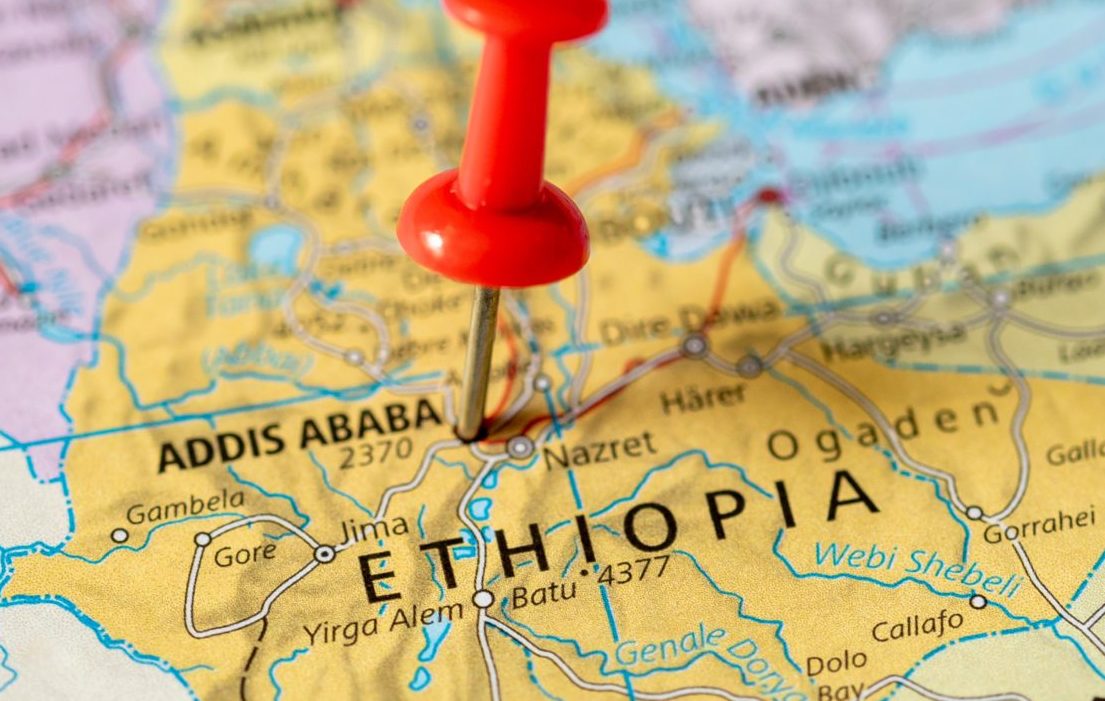Our Military Brass Has Learned Nothing

After twenty years and $2 trillion wasted in Afghanistan, a humiliating destabilization of Iraq that spread throughout the region, hubristic military intervention in Libya, and a failed humanitarian intervention in Somalia, among other failures, have we learned nothing?
For our ever powerful but never accountable elite military brass, the answer is a resounding no. Last Thursday, James Stavridis, a retired U.S. Navy admiral and former supreme allied commander of NATO who has gone on to become chairman of the board of the Rockefeller Foundation and vice chairman of Global Affairs at the Carlyle Group, wrote an opinion for Bloomberg in which he argued for U.S. intervention in Ethiopia’s burgeoning civil war.
At the outset, Stavridis acknowledged that his mostly American audience probably doesn’t know much about Ethiopia. Thankfully, he’s here to educate us. Ethiopia, Stavridis says, matters to the United States because it’s big, “more than 1.5 times the size of Texas,” and populous, with a population of about 115 million.
No, Ethiopia doesn’t have a major strategic port, or controls access to waterways vital to U.S. supply chains—it’s a completely landlocked country. Nor does it have vast reserves of rare earths, natural gas, or other precious metals, which some use to justify further U.S. involvement and investment in other African countries. Its importance, according to Stavridis, is political, as Addis Ababa is the seat of the African Union and home base for the United Nations Economic Commission for Africa. Because of its political import, destabilization in Ethiopia can have downstream destabilization effects in other countries. The solution, Stavridis claims, is to send U.S. and allied troops in to ensure Ethiopia’s growing civil conflict stays contained in the region of Tigray.
Yet again I ask: have we learned nothing?
To a certain extent, a stable North Africa is important to the United States because it borders the Red Sea, which leads to the Suez Canal that connects the Mediterranean to the Indian Ocean. As we learned when a ship that got lodged in the Suez canal for about a week earlier this year, disruptions to shipping lanes in the region can have a profound impact on how Americans get some of their necessities. Of course, the United States should certainly be looking for creative policies to re-shore supply chains within our borders so our access to basic goods and other necessities aren’t susceptible to external shocks, whether its a wayward ship or political instability in the horn of Africa. This project will be long, but well worth it, especially since it’ll mean arguments like those forwarded by Stavridis will no longer be in vogue.
The idea that U.S. troops will be able to successfully stabilize the conflict broiling in Ethiopia, a conflict born of ethnic divisions among the country’s three largest tribal groups, is ignorant of America’s previous experience in dealing with similar affairs in the MENA region. Take our intervention in Libya, which sought to oust Libyan dictator Muammar Gaddafi for human rights abuses perpetrated in the first Libyan Civil War, for example. American forces, along with its NATO partners, were successful in that mission. As then Secretary of State Hillary Clinton boasted, “We came, we saw, he died,” in her spin on Julius Caesar’s famous phrase.
However, has Libya been better off since Gaddafi’s gruesome death was basically televised for western audiences? No. Libya quickly fell into a second civil war. The country is widely recognized by scholars as a failed state, and remains a hotbed of terrorist and extremist activity where human rights abuses abound.
Stavridis attempts to pull at his audience’s heartstrings, invoking the West’s failure to intervene in the tragedy of Rwanda to justify U.S. intervention now in Ethiopia as some sort of reparations for historical misdeeds on the part of the United States. While Stavridis makes an emotional plea for America to get involved, the former supreme allied commander of NATO is relatively light on suggestions on how the United States should go about doing so. He seems encouraged by international efforts to negotiate a ceasefire between the Tigray People’s Liberation Front (TPLF) and the sitting government in Addis Ababa, but if the U.S. were to interject, would it be on the side of the government, led by Prime Minister Abiy Ahmed, a former Nobel Peace Prize laureate who has launched attacks on the TPLF and speaks of the conflict “in tones threatening ethnic cleansing,” according to TIME? Would we intervene on behalf of the rebels, and advocate for some kind of agreement in which the Tigray gets political autonomy—although it’s unlikely either side accepts such an agreement? In a report published earlier this month by the U.N. says both sides are guilty of brutal human rights abuses that could amount to war crimes, so which side are we on? Stavridis makes little attempt to clarify. Maybe he should do the bare minimum by figuring out which side we’re on before suggesting sending America’s sons and daughters into another country half-a-world away.